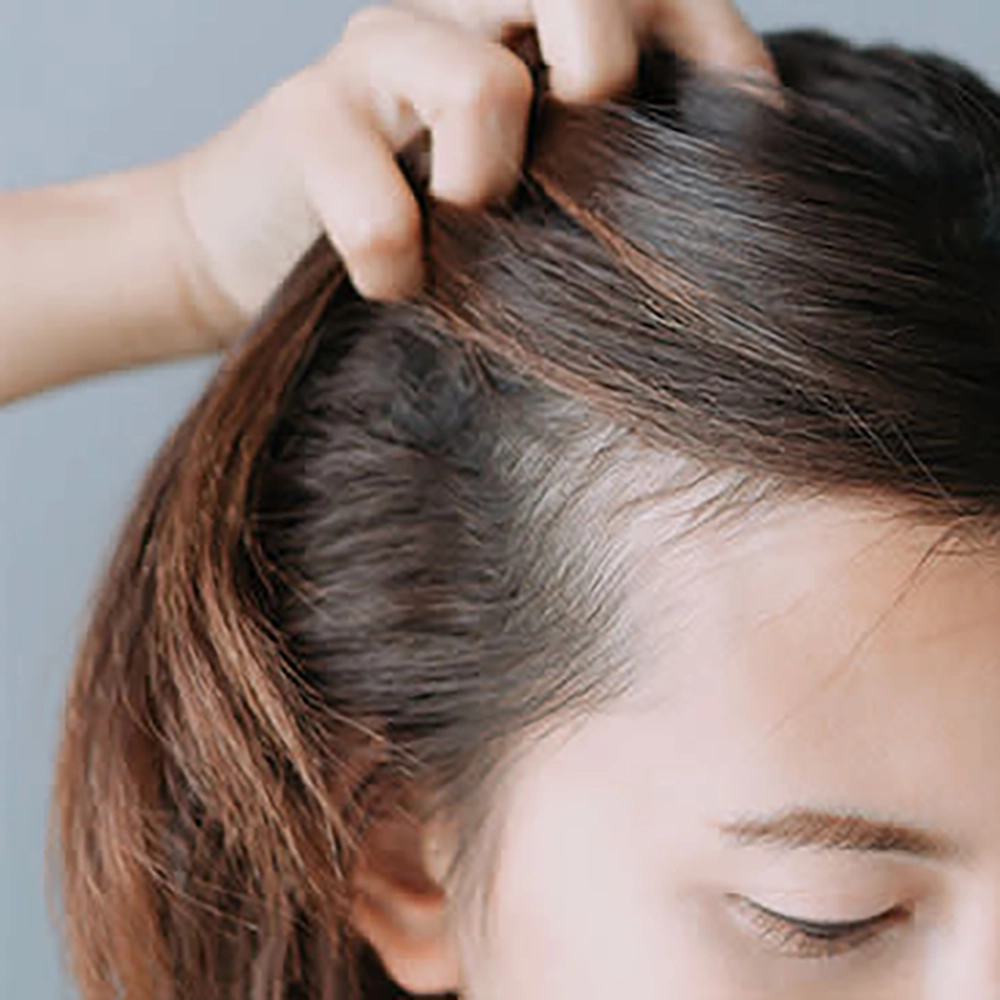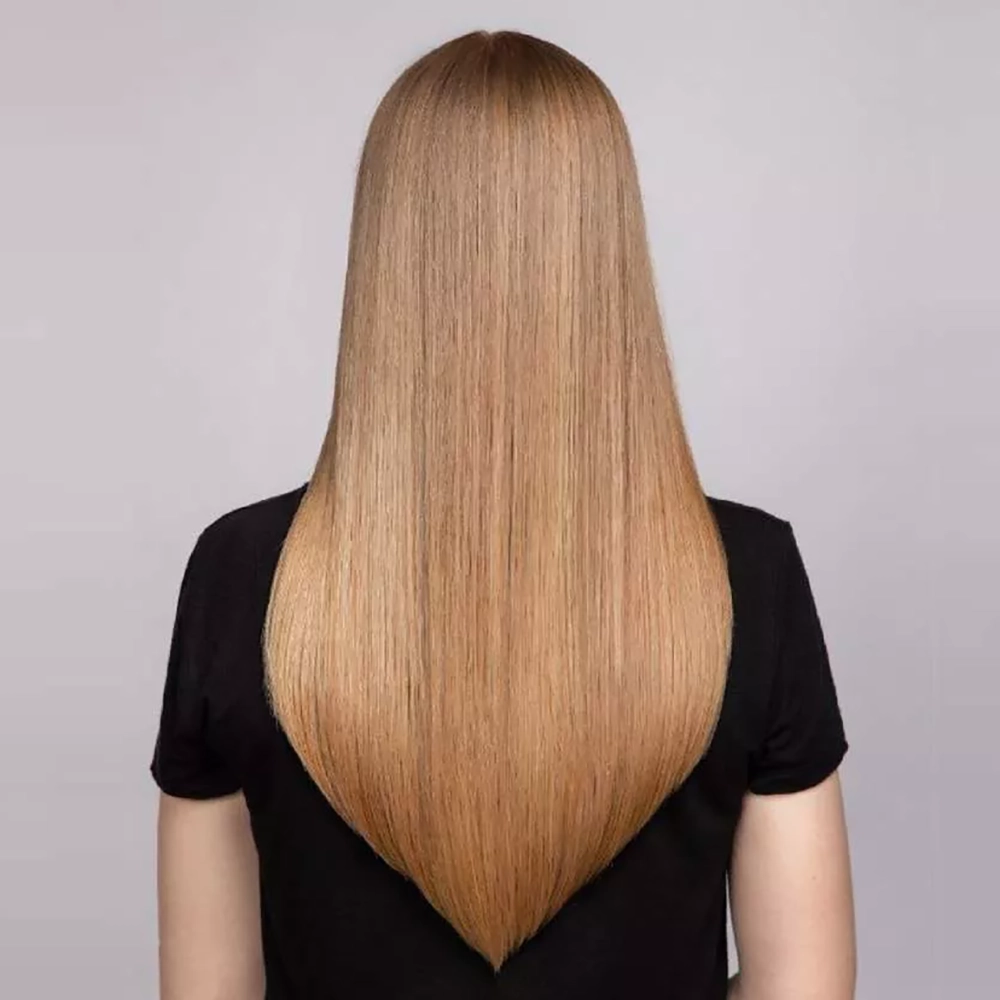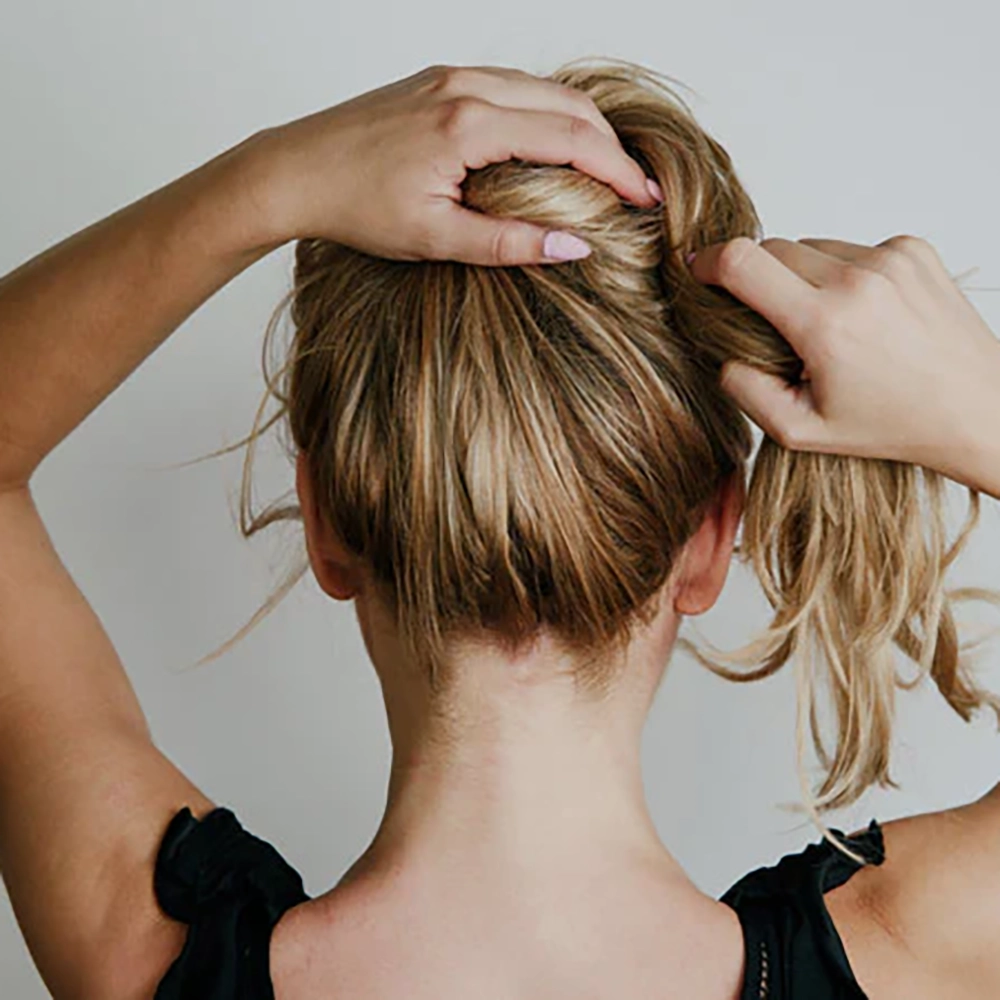Understanding postpartum hair loss
Postpartum hair loss, also known as postpartum alopecia, is a common condition that affects many women after giving birth. It can be a distressing experience, as women may notice excessive shedding and thinning of their hair. Understanding the causes and possible remedies for postpartum hair loss can help women navigate through this period with confidence.
There are several factors that contribute to postpartum hair loss. The hormonal changes that occur during pregnancy can cause an increase in hair growth and thickness. However, after giving birth, hormone levels rapidly return to normal, leading to a shedding phase known as telogen effluvium. This shedding phase usually occurs between 2-4 months after childbirth and can last for several months.
In addition to hormonal changes, other factors can also contribute to postpartum hair loss. Nutritional deficiencies, especially of vitamins and minerals like iron and biotin, can affect hair growth. Stress and lack of sleep, which are common in the postpartum period, can also exacerbate hair loss. Furthermore, certain medical conditions such as thyroid disorders can contribute to hair thinning and loss.
- Nutrition: A healthy diet is essential for maintaining hair health. Consuming foods rich in vitamins, minerals, and proteins can promote hair growth. Include plenty of fruits, vegetables, lean proteins, and whole grains in your diet.
- Hair care practices: Be gentle with your hair to avoid unnecessary breakage. Avoid hairstyles that pull tightly on the hair, and use a wide-toothed comb or brush to avoid tugging. Limit the use of heat styling tools and opt for heat protectant products when styling.
- Natural remedies: Some natural remedies may help stimulate hair regrowth. Massaging the scalp with essential oils like lavender or rosemary can improve blood circulation and promote hair growth. Additionally, applying onion juice or aloe vera gel to the scalp may be beneficial.
| When to Seek Professional Help: | Causes |
|---|---|
| If hair loss continues beyond 6-12 months postpartum or if it is causing significant distress, it is advisable to consult a healthcare professional. They can evaluate your medical history, perform necessary tests, and provide appropriate treatment options. | Postpartum hair loss is primarily caused by hormonal changes after childbirth. Nutritional deficiencies, stress, lack of sleep, and underlying medical conditions can also contribute to hair thinning and shedding. |
While postpartum hair loss can be disheartening, it is usually a temporary condition. Most women will notice their hair returning to its pre-pregnancy state within a year. However, incorporating healthy lifestyle changes, seeking professional help if needed, and trying natural remedies can help mitigate the effects of postpartum hair loss. Remember to be patient and kind to yourself as you navigate this transitional period.
Causes of postpartum hair loss
Postpartum hair loss is a common concern for many new mothers. It is a condition that occurs after giving birth and can leave women feeling self-conscious and worried about their appearance. Understanding the causes of postpartum hair loss can help women navigate this temporary phase with more confidence and peace of mind.
Hormonal Changes: One of the primary causes of postpartum hair loss is the hormonal changes that occur during pregnancy and after childbirth. During pregnancy, increased levels of estrogen prolong the growth phase of hair, resulting in thicker and fuller locks. However, after giving birth, hormone levels drop dramatically, causing the hair to enter a resting phase and eventually fall out. This shedding usually happens around three to six months postpartum.
Nutritional Deficiencies: Another factor that contributes to postpartum hair loss is nutritional deficiencies. Pregnancy and breastfeeding can place significant demands on a woman’s body, depleting important nutrients like iron, zinc, and biotin. These nutrients play a crucial role in maintaining healthy hair growth. When the body lacks these essential vitamins and minerals, it can lead to hair thinning and shedding.
Stress and Emotional Factors: The stress and emotional toll that comes with being a new mother can also contribute to postpartum hair loss. Lack of sleep, hormonal fluctuations, and the demands of caring for a newborn can all take a toll on a woman’s overall well-being. This stress can manifest itself physically, leading to hair loss and thinning.
- Keep in mind that postpartum hair loss is a temporary condition and usually resolves on its own within six to twelve months.
- To support healthy hair growth during this phase, focus on maintaining a well-balanced diet rich in fruits, vegetables, lean proteins, and whole grains.
- Consider incorporating foods that are high in vitamins A, C, and E, as well as Omega-3 fatty acids, to nourish the hair follicles.
- Avoid harsh hair treatments, excessive heat styling, and tight hairstyles that can further weaken the hair.
- Consulting a healthcare professional or a dermatologist specializing in hair loss can provide valuable guidance and support.
In conclusion, postpartum hair loss is a normal and temporary condition experienced by many new mothers. Understanding the causes, such as hormonal changes, nutritional deficiencies, and stress, can help normalize this phase and alleviate concerns. By adopting a healthy lifestyle, incorporating nutrient-rich foods, and seeking professional help if necessary, women can support hair regrowth and regain confidence in their appearance.
Healthy lifestyle changes for hair growth
When it comes to hair growth, there are a plethora of products and treatments available in the market. However, sometimes a few simple lifestyle changes can make a significant difference in promoting healthy hair growth. Incorporating these changes into your daily routine not only helps in preventing hair loss but also helps in maintaining the overall health of your hair. So, here are some healthy lifestyle changes that you can make to promote hair growth:
1. Balanced Diet: The first and foremost lifestyle change that you need to make for hair growth is to follow a balanced diet. Include foods that are rich in vitamins, minerals, and proteins, such as leafy greens, fruits, vegetables, whole grains, lean meats, and legumes. These nutrients play a vital role in stimulating hair growth and keeping it healthy. Also, drink plenty of water to stay hydrated, as dehydration can lead to brittle and weak hair.
2. Regular Exercise: Physical activity not only promotes overall health but also helps in improving blood circulation, including to the scalp. Increased blood flow to the hair follicles nourishes them and promotes hair growth. So, incorporate regular exercise into your routine, whether it’s a brisk walk, jogging, yoga, or any other form of physical activity that you enjoy.
3. Stress Management: Stress is known to cause hair loss, so it’s essential to manage stress effectively to promote healthy hair growth. Find activities or practices that help you relax and reduce stress levels, such as meditation, deep breathing exercises, or indulging in hobbies. Taking care of your mental well-being is equally important for the health of your hair.
To sum it up, healthy lifestyle changes can go a long way in promoting hair growth. By following a balanced diet, engaging in regular exercise, and managing stress effectively, you can nourish your hair from within and promote its overall health. Remember, hair growth takes time, so be patient and consistent with these lifestyle changes. In addition to these changes, it’s also essential to follow a good hair care routine and seek professional help if needed. By making these healthy lifestyle choices, you can contribute to maintaining the health and vitality of your hair.
Nutritional tips to combat postpartum hair loss
Postpartum hair loss is a common occurrence that many new mothers experience. It can be distressing to see large amounts of hair falling out, but rest assured, it is a temporary condition. There are several factors that contribute to postpartum hair loss, including hormonal changes, nutrient deficiencies, and stress. While it is not possible to completely prevent postpartum hair loss, there are certain nutritional tips that can help minimize the extent of hair loss and promote hair regrowth.
One of the key nutrients that play a vital role in hair health is iron. Iron deficiency is a common cause of hair loss, and it is particularly prevalent during pregnancy and postpartum. To combat postpartum hair loss, it is important to include iron-rich foods in your diet, such as lean meats, dark leafy greens, and legumes. Additionally, consuming foods high in vitamin C along with iron-rich foods can help enhance iron absorption.
Another important nutrient for hair growth is omega-3 fatty acids. These healthy fats are essential for the health of your hair follicles and can promote hair growth. Foods rich in omega-3 fatty acids include fatty fish like salmon and mackerel, chia seeds, flaxseeds, and walnuts. Including these foods in your diet can not only support hair growth but also provide numerous other health benefits.
Lastly, biotin is a B-vitamin that is known to promote healthy hair, skin, and nails. Including biotin-rich foods in your diet can help combat postpartum hair loss. Some good sources of biotin include eggs, nuts, seeds, and sweet potatoes. However, it is important to note that biotin supplementation should only be done under the guidance of a healthcare professional, as excessive intake can have adverse effects.
List of nutritional tips to combat postpartum hair loss:
- Include iron-rich foods in your diet, such as lean meats, dark leafy greens, and legumes.
- Consume foods high in vitamin C along with iron-rich foods to enhance iron absorption.
- Incorporate omega-3 fatty acid-rich foods like fatty fish, chia seeds, flaxseeds, and walnuts.
- Add biotin-rich foods to your diet, such as eggs, nuts, seeds, and sweet potatoes.
Table: Nutritional tips to combat postpartum hair loss
| Nutrient | Food Sources |
|---|---|
| Iron | Lean meats, dark leafy greens, legumes |
| Vitamin C | Citrus fruits, berries, broccoli |
| Omega-3 Fatty Acids | Fatty fish (salmon, mackerel), chia seeds, flaxseeds, walnuts |
| Biotin | Eggs, nuts, seeds, sweet potatoes |
While following these nutritional tips can help combat postpartum hair loss, it is important to remember that it takes time for hair to regrow after childbirth. It is also essential to focus on overall well-being and adopt a healthy lifestyle, including managing stress, getting regular exercise, and getting adequate rest. If you are concerned about the extent of your hair loss or it persists for a prolonged period, it is recommended to consult a healthcare professional for further evaluation and guidance.
Best hair care practices post-pregnancy
After pregnancy, many women experience changes in their hair. One common occurrence is postpartum hair loss, also known as postpartum alopecia. While this can be distressing for new moms, there are several hair care practices that can help promote healthy hair growth and minimize hair loss.
First and foremost, it is important to handle your hair gently. Pregnancy hormones can make your hair more fragile, so avoiding excessive brushing or combing is recommended. When you do brush or comb your hair, use a wide-toothed comb or a brush with soft bristles to prevent breakage.
In addition, it is advisable to avoid using heat styling tools such as curling irons or straighteners. These can further damage fragile post-pregnancy hair. Instead, embrace your natural hair texture and use heat-free styling methods such as air drying or braiding.
Another key aspect of hair care post-pregnancy is maintaining a healthy diet. Proper nutrition plays a vital role in hair health and growth. Ensure you are consuming a balanced diet rich in vitamins and minerals, including biotin, zinc, iron, and vitamin D. These nutrients can be found in foods such as eggs, nuts, leafy greens, and fatty fish.
In addition to a healthy diet, it is important to stay hydrated. Drinking an adequate amount of water helps to keep your scalp and hair follicles hydrated, promoting healthy hair growth. Aim to drink at least 8 glasses of water a day.
Lastly, consider incorporating scalp massages into your hair care routine. Massaging your scalp stimulates blood flow to the hair follicles, promoting hair growth. You can use your fingertips or a scalp massager to gently massage your scalp for a few minutes each day.
Overall, taking care of your hair post-pregnancy requires gentle handling, a healthy diet, hydration, and scalp stimulation. By following these hair care practices, you can help minimize postpartum hair loss and promote healthy hair growth.
Natural remedies to stimulate hair regrowth
Natural remedies can be a great option for promoting hair regrowth after experiencing postpartum hair loss. These remedies are safe, cost-effective and often have minimal side effects. By incorporating some of these natural remedies into your hair care routine, you can stimulate hair regrowth and regain your luscious locks.
One of the most effective natural remedies for hair regrowth is rosemary essential oil. This oil has been used for centuries to promote hair growth and improve hair thickness. Simply mix a few drops of rosemary essential oil with a carrier oil, such as coconut oil or olive oil, and massage it into your scalp. Leave it on for about 30 minutes before washing it out. Rosemary essential oil can stimulate blood circulation in the scalp, which promotes hair growth.
Aloe vera is another powerful natural remedy for hair regrowth. It contains enzymes that can repair dead skin cells on the scalp and stimulate hair follicles. Extract the gel from an aloe vera leaf and apply it directly to your scalp. Leave it on for about an hour before rinsing it off. Aloe vera not only promotes hair growth but also helps to balance the pH level of the scalp, preventing dandruff and itchiness.
In addition to rosemary essential oil and aloe vera, onion juice has also been proven to stimulate hair regrowth. Onion juice is rich in sulfur, which helps promote collagen production and encourage hair growth. Extract the juice from a fresh onion and apply it directly to your scalp. Leave it on for 15-20 minutes before washing it off. The sulfur in onion juice helps improve blood circulation and provide nourishment to the hair follicles.
By incorporating these natural remedies into your hair care routine, you can stimulate hair regrowth and combat postpartum hair loss. However, it is important to note that natural remedies may take time to show results. Consistency is key, so be patient and continue using these remedies regularly to see the best outcomes.
- Rosemary essential oil: Stimulates blood circulation in the scalp.
- Aloe vera: Repairs dead skin cells and balances the pH level of the scalp.
- Onion juice: Promotes collagen production and improves blood circulation.
| Remedy | Benefits |
|---|---|
| Rosemary essential oil | Stimulates blood circulation in the scalp |
| Aloe vera | Repairs dead skin cells and balances pH level |
| Onion juice | Promotes collagen production and improves blood circulation |
When to seek professional help for postpartum hair loss
Postpartum hair loss is a common occurrence among new mothers and can be a source of distress and concern. While some amount of hair shedding is normal after giving birth, excessive hair loss may indicate an underlying issue that requires professional intervention. Knowing when to seek professional help is crucial in managing and treating postpartum hair loss effectively.
What is postpartum hair loss?
Postpartum hair loss, also known as postpartum alopecia, is the excessive shedding of hair that occurs after childbirth. It is a natural and temporary condition and affects the majority of women. Typically, hair growth and loss occur in cycles, but during pregnancy, hormonal changes disrupt these cycles. As a result, hair that would typically shed remains in the growth phase, leading to thick and healthy-looking hair during pregnancy. However, after childbirth, when hormone levels normalize, the hair enters the shedding phase, resulting in postpartum hair loss.
When should you seek professional help?
While postpartum hair loss is normal, there are instances where seeking professional help is advisable. If you notice the following signs or symptoms, it is recommended to consult a healthcare provider or a dermatologist:
- Excessive hair loss that continues for more than six months after giving birth.
- Visible thinning of hair or bald patches.
- Itchy or inflamed scalp.
- Sudden and severe hair loss.
- Postpartum hair loss accompanied by other alarming symptoms like fatigue, weight loss, or changes in mood.
Why seek professional help?
Seeking professional help for postpartum hair loss is crucial to identify and address any underlying issues that may be contributing to excessive hair loss. A healthcare provider or dermatologist can assess your condition, perform necessary tests, and provide appropriate treatment options. They can also rule out any other potential health concerns that may be associated with hair loss, such as hormonal imbalances or nutritional deficiencies. Professional guidance ensures that you receive the appropriate care and support for managing postpartum hair loss effectively.
Conclusion
Postpartum hair loss can be a temporary and manageable condition for most women. However, seeking professional help is recommended in cases of excessive hair loss, visible thinning, or accompanying symptoms. Professional assistance can help identify underlying causes and provide appropriate treatment options to manage postpartum hair loss effectively. Remember, hair loss is a common experience among new mothers, and seeking professional help is a proactive step towards maintaining hair health and overall well-being.




































